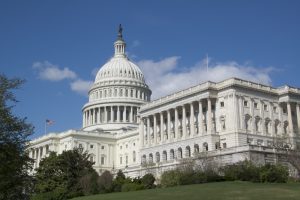
The House Appropriations Committee approved a funding bill on Wednesday that would cut discretionary spending for the Department of Labor, Department of Health and Human Services, Department of Education and related agencies by $5 billion from current levels.
U.S. Rep. Rodney Frelinghuysen (R-NJ), the chairman of the committee, was joined by U.S. Reps. Tom Cole (R-OK) and Steve Womack (R-AR) in making key contributions to a draft Fiscal Year 2018 Labor, Health and Human Services, Education (LHHS) spending bill that outlines $156 billion in discretionary funding.
Cole, the chairman of the House Appropriations Subcommittee on LHHS, said the measure achieves the dual goals of reducing discretionary spending and cutting lower-priority programs while making investments in medical research, public health, biodefense and other important national priorities.
“For a third consecutive year, it allocates a significant funding increase of $1.1 billion for the National Institutes of Health (NIH), which will benefit a wide range of biomedical programs, including public health preparedness and readiness in biodefense, and research programs to find cures spanning from cancer to Alzheimer’s,” Cole said. “Included as well are increases for special education funding; TRIO, GEAR UP, and early childhood education programs; and new provisions to protect human life. This bill is one that reflects the priorities that Americans value, and will continue to support the well-being of Americans through funding these vital programs.”
In addition to providing $35.2 billion to the NIH, Womack noted that it would provide $3.5 billion for the Substance Abuse and Mental Health Administration (SAMHSA).
“SAMHSA will provide the funding needed to assist in defeating the opioid crisis, an ever-growing concern across much of rural America,” Womack the vice chairman of the Subcommittee on LLHS, said. “This discretionary funding bill goes on to affirm programs such as the Low Income Home Energy Assistance Program (LIHEAP) that provide crucial assistance to many across the Natural State. In all, tough decisions were made and I am lucky to have played a small role in Congress’ annual obligation of designating its appropriated, constitutional funding priorities.”
The legislation also includes several provisions to rein in what lawmakers consider to be unnecessary regulations.
“This bill reflects Republican priorities to cut spending and focus investments in programs our people need the most: public health and medical research, biodefense, fundamental education, and proven programs that increase job growth, for example,” Frelinghuysen said. “It also includes important provisions to stop government overreach.”



